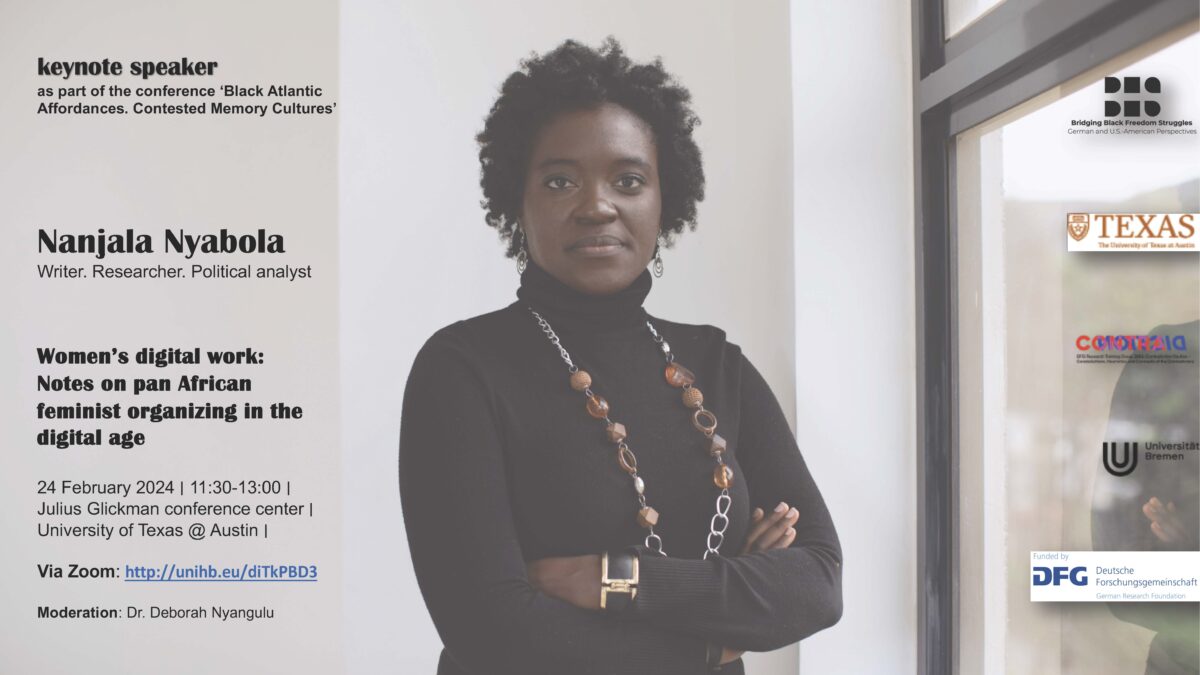Black Atlantic Affordances. Contested Memory Cultures
Dr. Deborah Nyangulu and Dr. Jana Weiss convened the ‚Black Atlantic Affordances. Contested Memory Cultures` conference at the University of Texas at Austin from Feb 23 – 25. The event featured a range of speakers who engaged with, among others, questions of Black freedom, memory cultures, , the Black radical tradition, African diaspora, and digital humanities. Prof. Dr. Ashley D. Farmer (UT Austin) and independent researcher, writer, and political analyst Nanjala Nyabola gave the keynote addresses. The conference also featured a roundtable on the topic of ‚Black Atlantic Affordance and Digital Humanities‘ with speakers Kelly Baker Josephs, Justin Dunnavant, Amani Morrison, and moderated by Deborah Nyangulu.
Mehr Informationen hier.

